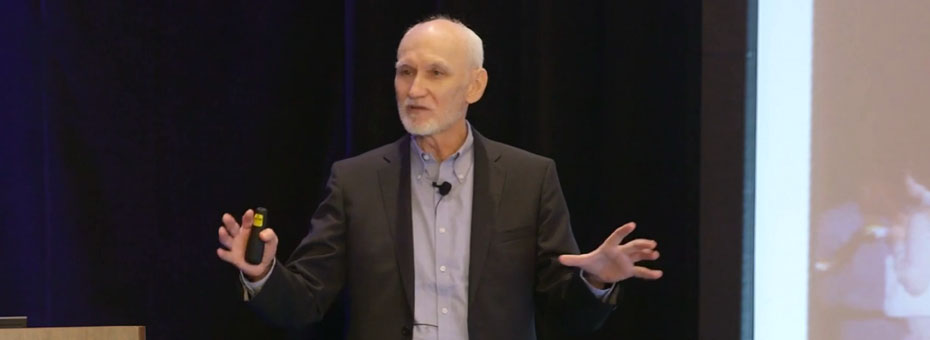In April, Lean Enterprise Institute CEO and author of Managing to Learn John Shook gave a keynote talk at LEAN UX NYC, a gathering of lean and lean startup practitioners in the user design and larger systems thinking community. The talk, “Lean Change: It’s Organizational and Personal,” covers everything from Shook’s early career experience at Toyota in Japan, the remarkable story of the joint GM/Toyota automotive venture NUMMI in the 1980s, how to create a lean culture and lean management system, the purpose of A3 thinking, and why inquiry and experimentation are more useful than attempting to have all of the answers.
Read on for excerpts from the talk and watch the full video below.
On what lean thinking and practice is really about:
“Lean can be misinterpreted…. as getting smaller, downsizing, outsourcing or something. But it really is applied systems thinking. Simple on the one hand, but it’s also much more than that on the other… Lean makes things better by developing people to solve problems and continually innovate… It’s a learning system.”
“One thing Lean is not is acting on assumptions or jumping to conclusions. Yes, we jump to conclusions… What we want to do is develop a practice of helping each other not to do that, of stopping and thinking and instead, making decisions based on science, what I call the art and craft of science.”
On organizational learning and lean management:
“Unless we address management in the context of how the work is done, it’s just an abstract conversation that has no real meaning.”
“Lean management is less about providing the right answers than asking the right questions and exploring those questions by engaging others in experiments to learn through doing.”
“Change what you do, the artifacts, the system first… that will change values and attitudes. That will change the basic thinking.”
“If we have an implementation mindset… it’s going to drive us to get it right. As opposed to an experimentation mindset, which means find the failures. Hiding problems is the worst illness of any organization. Elevating problems is the essence of what a lean culture is about.”
“The A3 process is a job aid to engage and develop problem solvers… It’s about getting everyone to learn how to tell their problem story on one piece of paper. And through sharing that story, we’re going to be able to engage others so we can have an aligned view of what the current situation is. And it’s going to make it easier for me, as a coach, to ask good questions… The piece of paper that tells a story is a snapshot of what’s going on in the [A3 owner’s/learner’s] mind.”
On individual learning:
“We need to engage everyone, whether it’s 5 people, 1,000 people, or 200,000… in problem finding and continuous experimentation. Then we need to give everyone permission to fail and ability to succeed.”
“We often start out as the answer provider. We come out of school… and we want to show that we’re smart… And that’s how we’re elevated throughout our organizations, right?… What we need to learn is how to be a dispassionate investigator. It’s very liberating when you learn that. All you need to do is experiment. Learn what we don’t know about the work… And having done that, not just content ourselves with being the dispassionate investigator, but once we’ve learned, [become] a passionate advocate for doing things in a better way. A better way for the customer, for the organization, and for the people who do the work.”



